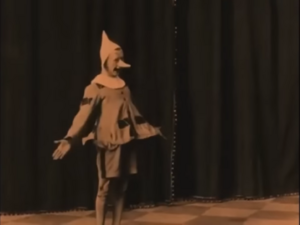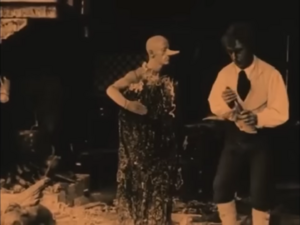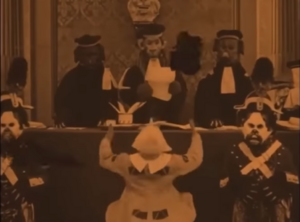Le avventure di Pinocchio (found Italian silent film; 1911)
Starting in 1883, Carlo Collodi's serialized novel, The Adventures of Pinocchio, enjoyed great success in it's native Italy and made Collodi a very successful and well-known author in his home country while he was alive and the story of Pinocchio itself has become the 3rd-most translated story in history. Far more than a century after Collodi's death in 1890, Pinocchio's success and popularity has endured and he remains a very popular children's story figure around the world, having inspired numerous feature-length films for both theaters and television, TV specials, and a mini-series here and there, all with varying degrees of quality and success, the most known of these adaptations being the 1940 feature-length animated film by Walt Disney and his production company of the same name.
However, that was far from the first adaptation of Pinocchio; aside from the unfinished 1936 Italian animated film and a Soviet Russian film based on Buratino, a Russian analogue of Pinocchio created by Aleksey Tolstoy (distant relative of Leo), entitled The Golden Key had come out in 1939, there also exists a silent film adaptation that predates The Golden Key by at least 28 years.
It is merely entitled Le avventure di Pinocchio and, having came out in 1911, is the oldest film adaptation of Pinocchio known to exist. With a runtime of between 52 and 54 minutes, it also holds the distinction of being one of the first feature-length films. Ferdinand Guillaume, at the time one of the best known performers in Italy's world of comedy on stage and screen, plays Pinocchio with his brother Natalino playing Lucignolo (better known by the name of Lampwick), Augusto Mastripietri playing Geppetto, and Lea Giunchi playing the Blue Fairy. After taking only a few months to be completed, the film came out in November of 1911 and enjoyed great financial and critical success in it's native Italy and an abridged version of the film was exported to other nations.
However, as the film stock that would have been used at the time was highly combustible, enough copies were destroyed in fires, improperly stored which led to irreversible deterioration, or were simply misplaced due to poor record-keeping that the film was presumed to have joined the ranks of thousands of other silent films of the early-1900s as having been lost to time entirely, save for five minutes of heavily-deteriorated film. Fortunately in 1994, the film's original negative was discovered in good enough condition to be converted onto viewable film. In 2002, TIME magazine magazine reported that a 30-minute cut, likely one of the exported prints that was shortened, had been found and restored.
The restored film was screened in 2018, more than a century after it's initial release, at the Zorilla Theater in Spain and was accompanied by live electronic music courtesy of Miclono, a local musical band.
The film itself has been described as being a rather loose adaptation of the original story but being a very unsettling and unnerving film, due to adapting such a surreal story to a medium that was still in it's infancy and had yet to be perfected.



